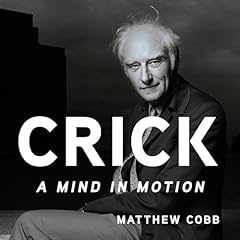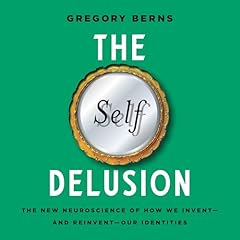
The Idea of the Brain
The Past and Future of Neuroscience
No se pudo agregar al carrito
Solo puedes tener X títulos en el carrito para realizar el pago.
Add to Cart failed.
Por favor prueba de nuevo más tarde
Error al Agregar a Lista de Deseos.
Por favor prueba de nuevo más tarde
Error al eliminar de la lista de deseos.
Por favor prueba de nuevo más tarde
Error al añadir a tu biblioteca
Por favor intenta de nuevo
Error al seguir el podcast
Intenta nuevamente
Error al dejar de seguir el podcast
Intenta nuevamente
 Exclusivo para miembros Prime: ¿Nuevo en Audible? Obtén 2 audiolibros gratis con tu prueba.
Exclusivo para miembros Prime: ¿Nuevo en Audible? Obtén 2 audiolibros gratis con tu prueba.
Elige 1 audiolibro al mes de nuestra inigualable colección.
Acceso ilimitado a nuestro catálogo de más de 150,000 audiolibros y podcasts.
Accede a ofertas y descuentos exclusivos.
Premium Plus se renueva automáticamente por $14.95 al mes después de 30 días. Cancela en cualquier momento.
Compra ahora por $28.79
-
Narrado por:
-
Joe Jameson
-
De:
-
Matthew Cobb
An "elegant", "engrossing" (Carol Tavris, Wall Street Journal) examination of what we think we know about the brain and why -- despite technological advances -- the workings of our most essential organ remain a mystery.
"I cannot recommend this book strongly enough."--Henry Marsh, author of Do No Harm
For thousands of years, thinkers and scientists have tried to understand what the brain does. Yet, despite the astonishing discoveries of science, we still have only the vaguest idea of how the brain works. In The Idea of the Brain, scientist and historian Matthew Cobb traces how our conception of the brain has evolved over the centuries. Although it might seem to be a story of ever-increasing knowledge of biology, Cobb shows how our ideas about the brain have been shaped by each era's most significant technologies. Today we might think the brain is like a supercomputer. In the past, it has been compared to a telegraph, a telephone exchange, or some kind of hydraulic system. What will we think the brain is like tomorrow, when new technology arises? The result is an essential read for anyone interested in the complex processes that drive science and the forces that have shaped our marvelous brains.
Los oyentes también disfrutaron:




















Reseñas de la Crítica
"An intellectual tour de force, and a brilliant demonstration of how a historical approach is often the best way of explaining difficult scientific problems... I cannot recommend this book strongly enough."—Henry Marsh, The New Statesman
"Elegant... engrossing... clear and lively... The reader will come away from this illuminating history of thinking about the brain with a renewed appreciation of the task that remains."—Carol Tavris, Wall Street Journal
"This ambitious intellectual history follows the changing understanding of the brain from antiquity to the present... Cobb's account is an important contribution: few have offered such accessible insights, with choice examples and clear explanations of the societal factors that lie beneath... It is a very good book."—Nature
"Sweeping and electrifyingly skeptical"—The Guardian
"A fresh history and tour d' horizon of "the most complex object in the known universe." Although scientists still struggle to understand the brain, they know a great deal about it; Cobb, a professor of biological sciences, delivers an excellent overview."—Kirkus Reviews
"The book reveals that there are many ways to think about what brains are, what they do, and their relation to the mind. Cobb's erudition and engaging writing style take us on an enthralling journey, rich with accidental discoveries, controversies, and rejected hypotheses."—Science
"In this engrossing book, Matthew Cobb deftly recounts the tortuous history of research on the brain, in which researchers pursue the hard problems of memory, consciousness, and volition, always limited by forced comparisons between human brains and the machines available at the time. A work of history and deep scholarship, but written in an engaging and lively way, The Idea of the Brain is optimistic about the recursive attempts of our brains to understand themselves, yet reminds us that the three most important words in science are, 'We don't know.'"—Jerry Coyne, author of Why Evolution is True
"The story of the most complex object in the universe has never been told with greater clarity, insight, and wit. Charting the route to future discoveries, this is a masterpiece"—Adam Rutherford, author of A Brief History of Everyone Who Ever Lived
"Matthew Cobb weaves a fascinating story of the historical arc of neuroscience, from the initial discovery that the brain gives rise to our minds, to the state of the art in the manipulation and control of the brain."—Russell Poldrack, author of The New Mind Readers
Las personas que vieron esto también vieron:


















Good summary of the current understanding of the brain
Se ha producido un error. Vuelve a intentarlo dentro de unos minutos.
Really enjoyed this book
Se ha producido un error. Vuelve a intentarlo dentro de unos minutos.
Excellent Overview
Se ha producido un error. Vuelve a intentarlo dentro de unos minutos.
Good Science
Se ha producido un error. Vuelve a intentarlo dentro de unos minutos.
Very thought provoking
Se ha producido un error. Vuelve a intentarlo dentro de unos minutos.


